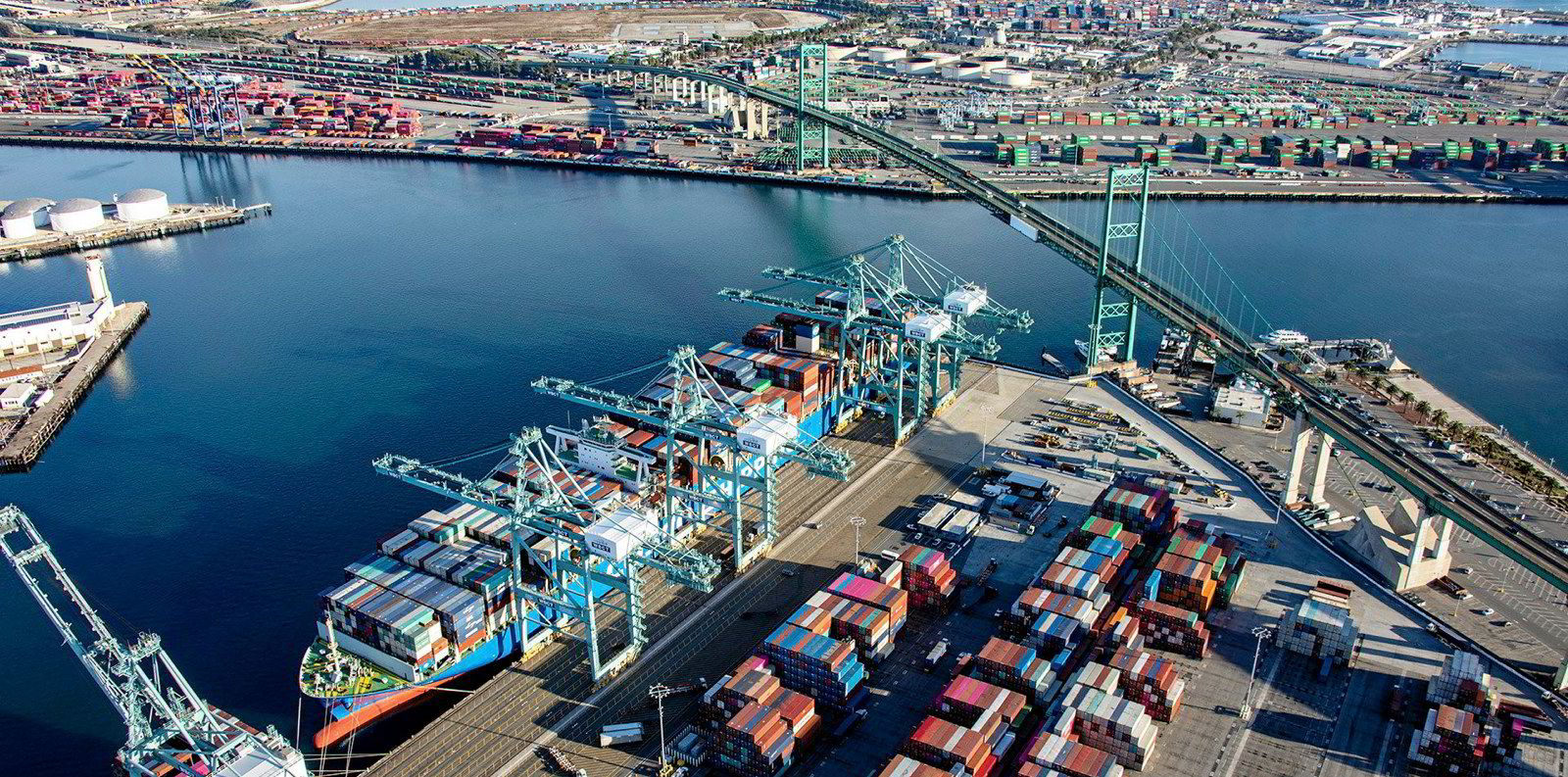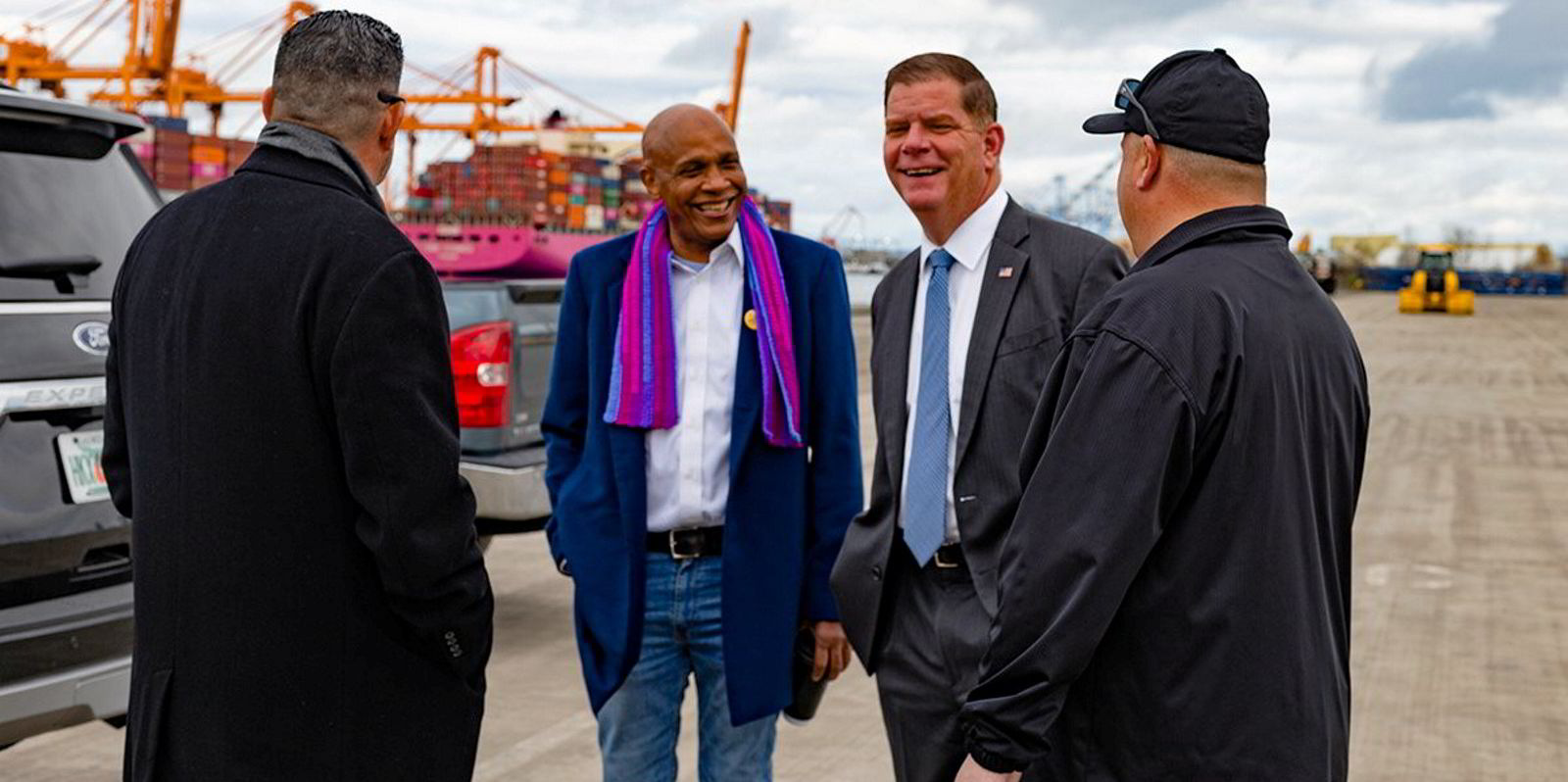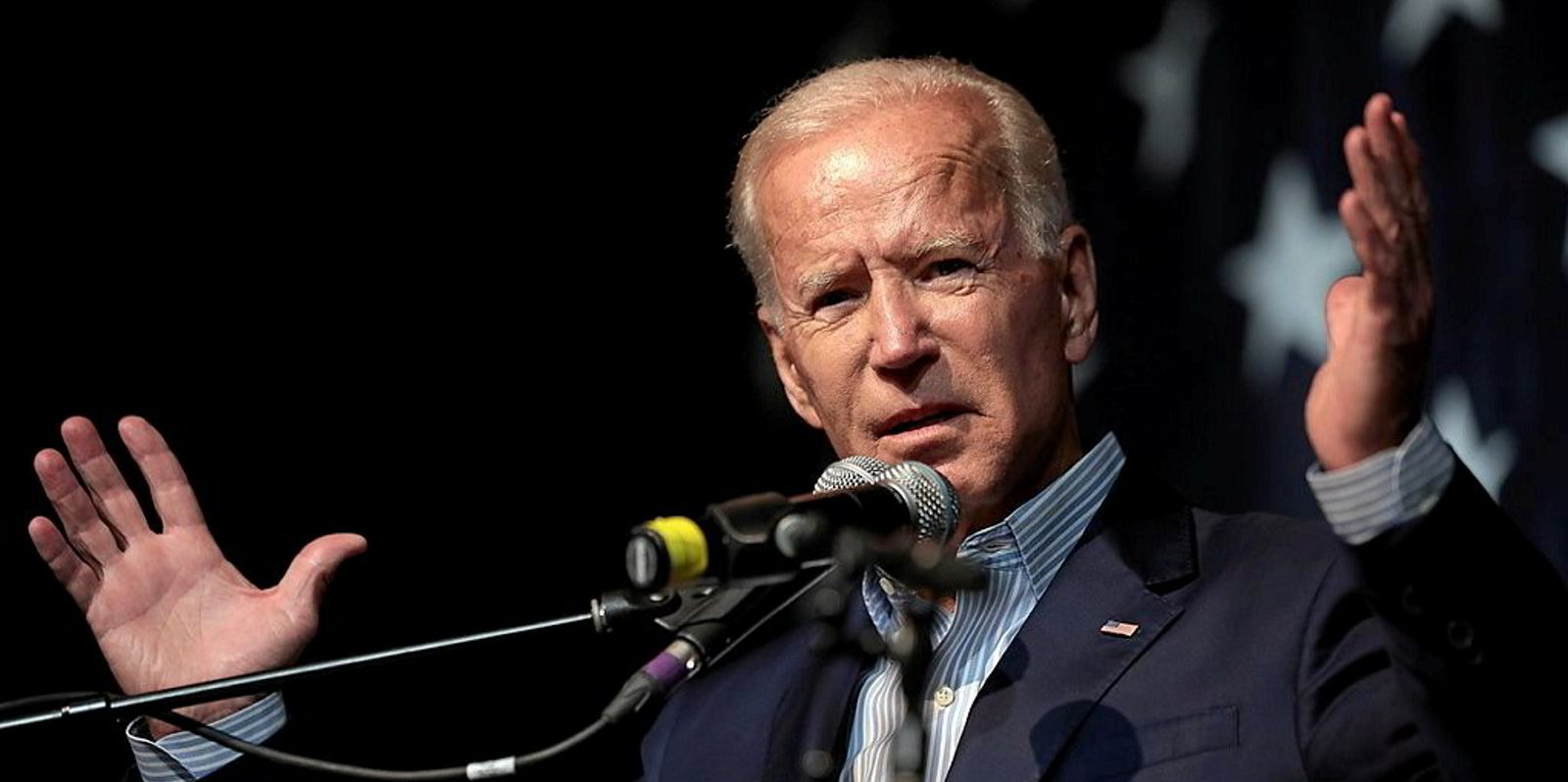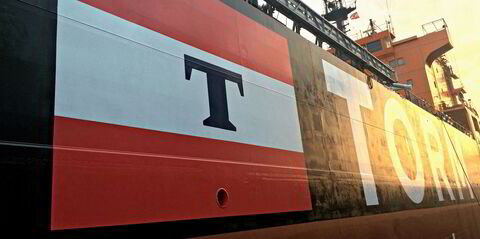In 2014, the start of labour negotiations involving dockworkers across the coastlines of California, Oregon and Washington was followed by a months-long slowdown at container ports.
It could have been worse.
In 2002, for example, stalled talks led the Pacific Maritime Association (PMA) — the employers’ group — to lock out workers across the US west coast.
The next round of these often fraught labour negotiations is set to begin next month, with the two sides aiming to reach an agreement before the contract for 15,000 dockworkers at 29 ports from San Diego in Southern California to Bellingham in Washington state are set to expire.
This time around, the talks come on the heels of an unprecedented period of port congestion. That has helped the bottom line of container liner operators but has also been a major factor in a supply-chain crisis that fuelled a rare moment when shipping has been on the mind of the American public and President Joe Biden.
Negotiations are scheduled to begin on 12 May, with the current contract set to expire at the end of June.
On the one side is PMA, whose 70 member companies include a who’s who of container liner operators including Mediterranean Shipping Co, AP Moller-Maersk and CMA CGM, as well as a host of car-carrier operators and port terminal companies.
On the other side is the International Longshore and Warehouse Union (ILWU), which represents dockworkers on the west coast of both the US and Canada, as well as in Hawaii.
Jonathan Gold, vice president of supply chain and customs policy at the National Retail Federation (NRF), said it is unlikely that a new contract will be signed by the 1 July deadline.
Given the history of disruptions, shippers have been putting mitigation strategies into place since container freight contracts were forged last year with container carriers, he said.
“They’ve learned from the past that they can’t wait to make those plans,” Gold told TradeWinds.
He said retailers have been shifting cargoes from the west coast to the east coast, bringing in cargoes early and turning to air freight, among other measures to prepare for potential disruption from the labour talks.
Port congestion has been easing at west coast container terminals as vessel queues shrink, and it has increased on the US east coast, but the NRF expects imports to surge again as the peak season approaches.

John McCown, a former container shipping executive who continues to track the industry as founder of New York-based Blue Alpha Capital, said he does not yet see contract negotiations as a factor in the eastward shift of containerised imports to the US yet.
As TradeWinds has reported, he believes shippers have been shifting containerised cargo eastward because of congestion on the west coast, and he expects that to continue because it makes more economic sense.
“Shipments in May and June might start to be affected with further routing away from the west coast,” he told TradeWinds.
But he said that if many more shippers make that shift, it could reduce congestion on the Pacific to an extent that makes it attractive for some to take a chance on a west coast shipment.
Amid the worries over potential supply-chain disruptions resulting from the talks, ILWU president Willie Adams has called for calm.
“There are adults on both sides of the table. It’s called the process,” he said in a video interview released as part of a Port of Los Angeles media briefing.
“Sometime in May, we’re going to sit down and we’re going to get an agreement.”
The PMA has highlighted the need for the employers’ group and the ILWU to work together to prevent further supply-chain disruption.
“Cooperation will be key as we work toward a new agreement,” the group said on Twitter.
The Biden administration is also keeping tabs on the talks, which in previous contract renewals has often drawn the intervention of the federal government.
In March, US labour secretary Marty Walsh met with ILWU members in Seattle and Tacoma to discuss the labour talks.
Although retailers may be prepared for the negotiations between PMA and ILWU to run into problems, a slowdown or shutdown at west coast ports would still be a blow.
“We’ve already had enough supply-chain disruption activity now because of congestion and ongoing issues,” NRF’s Gold said. “To have disruption because of the labour negotiations would be even more significant.”





